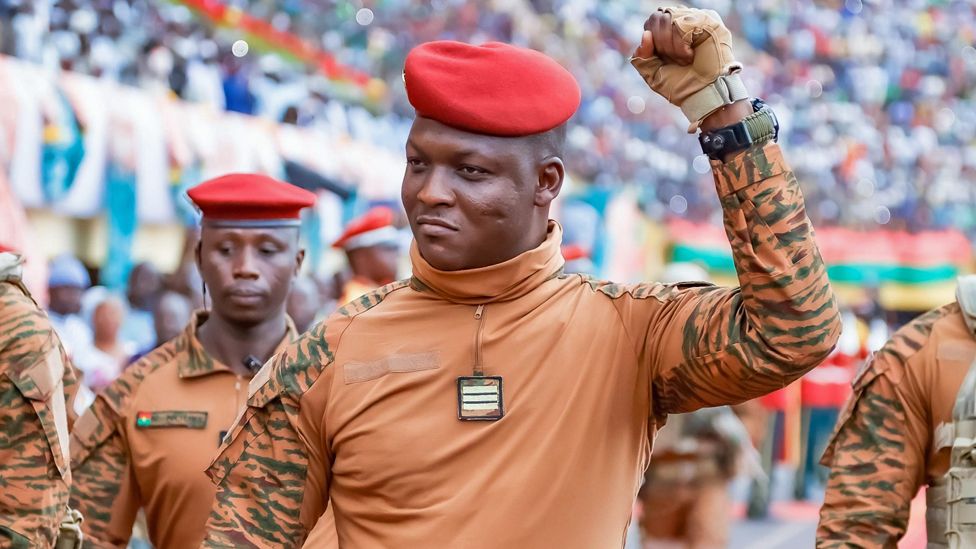Captivating a Continent: The Rise of Capt Ibrahim Traoré
At just 37 years old, Capt. Ibrahim Traoré has established himself as a pivotal figure in Burkina Faso and increasingly across Africa. Since ascending to power via a coup in 2022, Traoré has constructed a persona that resonates with pan-African ideals, positioning himself as a liberator from what he describes as Western imperialism and neo-colonialism.
Traoré’s narrative has garnered him not just national, but continental admiration, with many equating his leadership style to that of Thomas Sankara, a revered revolutionary figure from Burkina Faso often referred to as “Africa’s Che Guevara.” Beverly Ochieng, a senior analyst at Control Risks, notes that Traoré’s appeal is particularly strong in regions such as East Africa, where calls for reevaluating relationships with the West echo in political discussions.
Shift in Alliances and Economic Policies
Since taking control, Traoré’s government has pivoted away from traditional ties with France and established closer relations with Russia. This shift has facilitated the introduction of leftist economic strategies, such as forming a state-owned mining company. Foreign mining operations are now mandated to provide a 15% stake to local entities and equip Burkina Faso nationals with essential skills.
Recently, the junta approved a new license for the Russian mining corporation Nordgold, further solidifying this partnership amid plans for a homegrown gold refinery and national gold reserves—significant firsts for the nation.
| Aspect | Details |
|---|---|
| Leadership Style | Pan-Africanist, rejects Western influence |
| International Partnerships | Strong alignment with Russia |
| Key Policies | State-owned mining initiatives, local stake requirements |
| Public Perception | Highly popular among African youths |
| Recent Developments | Nationalisation of foreign gold mines |
A Complex Landscape of Dissent and Popularity
The rising support for Traoré is complemented by a growing skepticism toward Western-style democracy in many African nations. As evidenced by a survey from Afrobarometer, there has been a notable decline in faith in democratic governance, amidst widespread dissatisfaction with joblessness and economic conditions.
Despite this burgeoning support, Traoré has faced criticism for his regime’s suppression of dissent. Critics, including media and civil society organizations, have found their voices stifled, with accusations directed at the junta for punishing opponents by sending them to combat zones amid an ongoing Islamist insurgency.
Cultural Influence and International Attention
Social media plays a crucial role in amplifying Traoré’s message, with even notable figures from the global African diaspora resonating with his ideology. His charismatic persona was notably showcased during the 2023 Russia-Africa summit, where he urged fellow leaders to cease being “puppets” under Western influence.
Though Traoré’s popularity appears to be transcending borders, his approach has drawn the ire of some Western leaders. French President Emmanuel Macron criticized him as part of a misleading alliance of pan-Africanism paired with neo-imperialist agendas.
As Burkina Faso navigates a ever-evolving political landscape, Traoré’s leadership invites scrutiny and speculation about how his vision will shape the future, both domestically and internationally. With mounting support from young people, he faces the challenge of addressing pressing security issues and economic inequality while avoiding the pitfalls of unchecked power.


